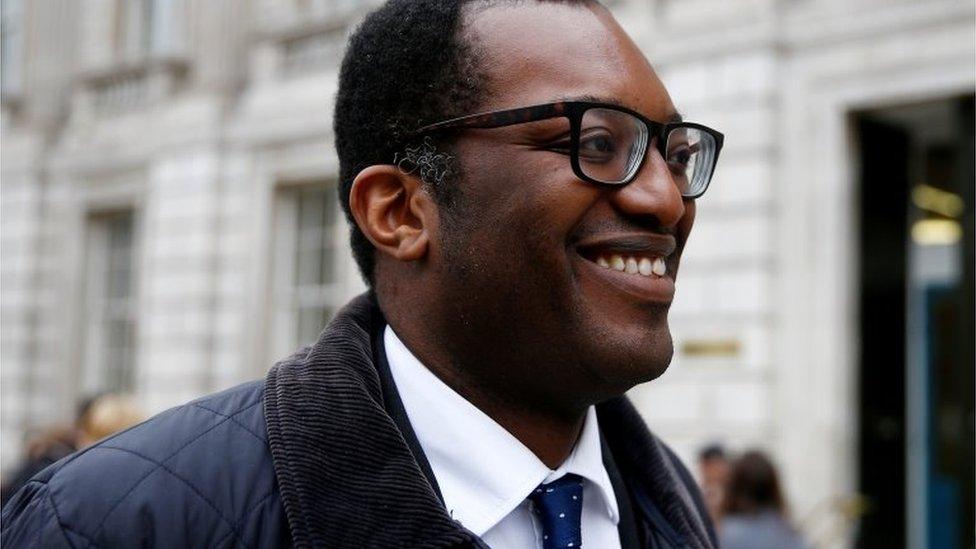Carillion: Legal bid launched to ban former directors
- Published

The government has launched a legal bid to ban former Carillion directors from holding senior boardroom positions in the UK.
Action brought by the new business secretary could see eight ex-directors banned from taking up senior management roles for up to 15 years.
Kwasi Kwarteng launched the legal proceedings "in the public interest", the Insolvency Service said.
The move comes three years after Carillion crashed into administration.
Carillion was wound up in January 2018, and the Official Receiver submitted a report about the conduct of each director.
Thousands of jobs were lost following the collapse of the construction giant, which was one of the biggest corporate failures in the UK.
Mr Kwarteng has decided it would be in the public interest for a court to make an order disqualifying the directors on the grounds of their conduct.
A spokesperson for the Insolvency Service, which handles corporate collapses, said: "We can confirm that on 12 January the Secretary of State issued company director disqualification proceedings in the public interest against eight directors and former directors of Carillion."

Kwasi Kwarteng recently succeeded Alok Sharma as business secretary
The court proceedings name eight individuals, including former chairman Philip Green, former chief executive Richard Howson and ex-company director Keith Cochrane, who led the firm in the final months before its collapse.
Two ex-finance directors and three boardroom non-executives are also named.They could be banned for between two and 15 years from being directors of firms based in the UK, or from forming or promoting a company in the UK or with connections to it.

'Unusual' course of action

Formal proceedings for the disqualification of directors are rare - it is difficult to recall the last time a UK business secretary went to court to try to bar the former directors of a large British company, particularly one that had been listed on the London Stock Exchange.
In one recent, high-profile, company collapse, that of the carmaker MG Rover in 2005, the government did not take legal action. The directors accepted a voluntary ban instead. MG Rover was not a listed company.
There are other aspects of this action that make it unusual. The Business Secretary, Kwasi Kwarteng, has chosen to seek a ban against individuals who were no longer directors of Carillion at the time of its collapse. Richard Howson and Richard Adam, the long-serving chief executive and finance director respectively, had left by the time it went under.
The action is also against those who were brought in to try to turn the company around - Keith Cochrane, chief executive at the time of the collapse (although he had been a non-executive of the company before taking the top job) and Zafar Khan, who was finance director for a short spell.
Non-executives have not been spared either. Philip Green, the long-serving chairman, is named, as are Alison Horner (once head of Tesco's Asia division), Andrew Dougal and Ceri Powell.
Other regulatory action awaits, with ongoing investigations by the Financial Conduct Authority and Financial Reporting Council.

Around the time of the Carillion's collapse, unions led criticism of the company's executives and auditors, and of the handling of public sector contracts by private companies.
A joint report by two parliamentary select committees, external found its business model had been defined by a "relentless dash for cash, driven by acquisitions, rising debt, expansion into new markets and exploitation of suppliers".
When it was liquidated with debts of £1.5bn in January 2018, the firm had about 420 UK public sector contracts, according to the National Audit Office.
Almost all services provided by Carillion, which also included providing school meals and maintaining prisons, continued uninterrupted after the firm's collapse, although work on some construction projects stopped.
Related topics
- Published7 June 2018

- Published19 January 2018
